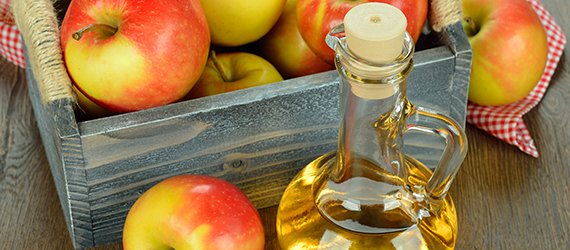You need more nutrients when you’re active, but which are the most important and exactly how much is enough?
Regular, intense exercise increases your requirements of the micronutrients involved in energy metabolism, tissue growth and repair, red blood cell manufacture and free radical defence. And while it’s tempting to think supplements will boost your performance, there’s little scientific evidence to support this theory. Most researchers conclude that a balanced diet should provide all the vitamins and minerals you need to keep healthy and train hard. Here’s the lowdown on the ten most useful.
Vitamin E
Why you need it: Vitamin E is a powerful antioxidant, which prevents the oxidation of fatty acids in cell membranes, and protects the cell from damage caused by strenuous exercise.
Best food sources: Vegetable oils, margarine, wholegrain bread, oily fish, nuts, seeds, avocado, green leafy vegetables and egg yolk.
How much? The National Health and Medical Research Council recommends a dietary intake of 7mg/day for adult women: half an avocado, 60g spinach, six almonds, plus 10ml sunflower oil.
Vitamin C
Why you need it: Vitamin C is needed for growth and the repair of body cells, and for the formation of connective tissues, red blood cells and exercise-related hormones, including adrenaline. It also promotes healthy blood vessels and strengthens the immune system. It’s a powerful antioxidant that can protect against exercise-related cell damage.
Best food sources? Fresh fruit and vegetables – particularly citrus fruit, berries, currants and dark green leafy veg.
How much? 40mg/day: half an orange, or half a red capsicum, or 10 strawberries.
Vitamin B6
Why you need it: Vitamin B6 is involved in protein, fat and carbohydrate metabolism, which increases as a result of regular exercise. It’s also needed for making red blood cells, new body proteins and antibodies.
Best food sources: Liver, nuts, pulses, eggs, bread, cereals, fish and bananas.
How much? 1.2mg/day: two bananas, plus 120g of salmon or tuna.
Vitamin A and beta-carotene
Why you need them: Vitamin A helps you to see in dim light (important if you run in the dark), keeps the skin, hair and eyes healthy and keeps the linings of organs such as the lungs healthy. Beta-carotene, converted into vitamin A in the body, is a powerful antioxidant that helps protect the cells from oxidative damage during intense exercise.
Best food sources: Vitamin A: Liver, cheese, oily fish, eggs, butter and margarine. Beta-carotene: Dark green vegetables, such as spinach and watercress,and yellow, orange and red fruits.
How much? Vitamin A, 600mcg/day: 15g margarine, one egg and two tablespoons of spinach. An Australian recommended dietary intake (RDI) has not been established for beta-carotene.
Folic acid
Why you need it: Folic acid is involved in the formation of red blood cells (compared to sedentary people, runners have a higher red blood count) and is also needed for the manufacture of new body cells.
Best food sources: Dark green leafy vegetables, oranges, fortified breakfast cereals and bread, yeast extract, nuts and pulses (legumes).
How much? 200mcg/day: 30g bran flakes, 25g peanuts plus one serving (3g) yeast extract.
Calcium
Why you need it: Calcium is important for the structure of bones and teeth, but it also plays an important role in blood clotting, muscle contraction and nerve function. Weight-bearing exercise, such as running, increases bone mass and calcium absorption, so it’s important to get enough calcium in your diet.
Best food sources: Milk and dairy products; sardines, dark green leafy vegetables, pulses, nuts and seeds.
How much? 700mg/day: one glass (200ml) milk, one tub (150g) of yogurt and two tinned sardines (40g).
Iron
Why you need it: Iron is important for female runners as it’s needed to make haemoglobin (which transports oxygen in the blood) and myoglobin (which transports oxygen in the muscle cells). A deficient intake can impair aerobic metabolism by decreasing delivery of oxygen to the muscles and reducing the ability of muscles to use oxygen for energy.
Best food sources: Meat and offal, wholegrain cereals, nuts, fortified breakfast cereals, beans, lentils, green leafy vegetables. Including vitamin C-rich foods with meals – for example by adding fruit to breakfast cereal – enhances the absorption of iron.
How much? 14.8mg/day: one steak (150g), 100g spinach, 100g salmon, plus a 45g bowl of bran flakes.
Vitamin D
Why you need it: Vitamin D is needed for strong bones (along with calcium and phosphorus), as it helps the body absorb calcium.
Best food sources: Oily fish, eggs, liver, fortified breakfast cereals and margarine.
How much? No RDI for non-pregnant, non- breastfeeding women has been established in Australia, but you should be able to get enough vitamin D by getting 10 minutes of sun exposure a day on your face and arms. It is recommended that pregnant and breastfeeding women need 10mcg.
Zinc
Why you need it: Zinc is crucial to the activity of more than 70 enzymes involved in the metabolism of proteins, fats and carbohydrates. It also helps heal wounds and promote recovery from soft tissue injuries, as well as keeping the immune system healthy to fight infection.
Best food sources: Nuts, lentils, beans, eggs, wholegrain cereals, meat, milk and dairy products.
How much? 7mg/day: 115g steak, 85g cashew nuts, four slices of wholemeal bread, plus 115g cooked lentils.
Magnesium
Why you need it: Magnesium is involved in tissue repair after exercise, and in muscle contraction and nerve function. It also helps your body absorb calcium and potassium, and utilise vitamins B6, C and E.
Best food sources: Wholegrain cereals, nuts, fruit, vegetables and dark chocolate.
How much? 270mg/day: 50g mixed nuts, three slices of wholemeal bread, two shredded wheat, plus 50g dark chocolate.
